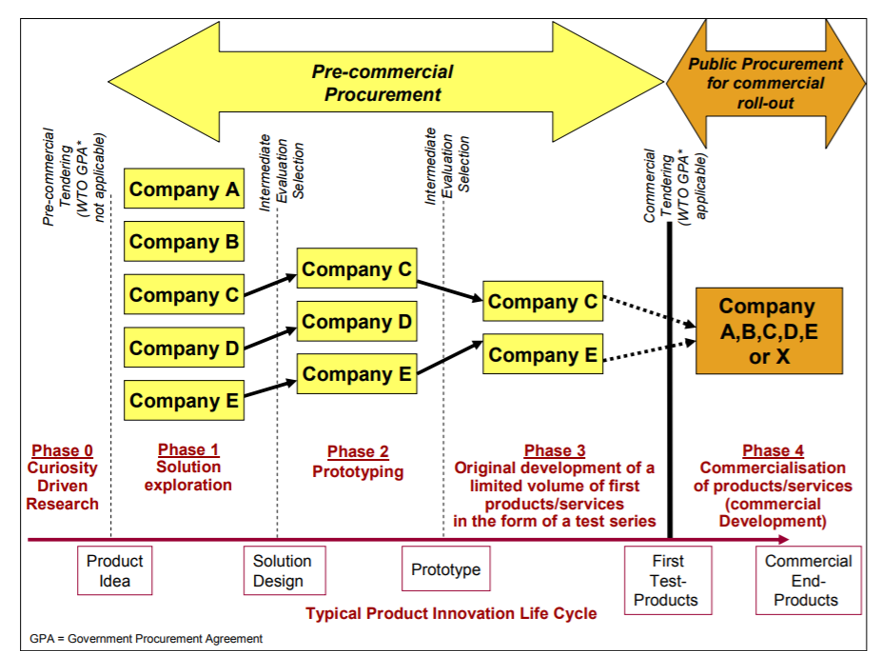What is Pre-Commercial Procurement (PCP)?
[an activity] undertaken, usually by a government or a public-private partnership, to support innovation through the purchase of R&D services, which normally includes the delivery of a ‘product prototype’ Rigby 2016
In PCP, public procurers buy R&D from several competing suppliers in parallel to compare alternative solution approaches and identify the best value for money solutions that the market can deliver to address their needs. R&D is split into phases (solution design, prototyping, original development and validation/testing of a limited set of first products) with the number of competing R&D providers being reduced after each R&D phase.
One of the biggest advantages of PCP is the sharing of both opportunities and risks by both the public buyers and the private suppliers. It allows public purchasers to get innovative solutions to satisfy challenging needs, and support companies in their R&D.
PCP Phases
PCP as implemented in EU projects generally follow a phased approach as shown below. This is the case for the Superflat PCP. Phases 1-3 constitute the PCP. Phase 4 may be supported by a PPI (Public Procurement of Innovation) initiative.

